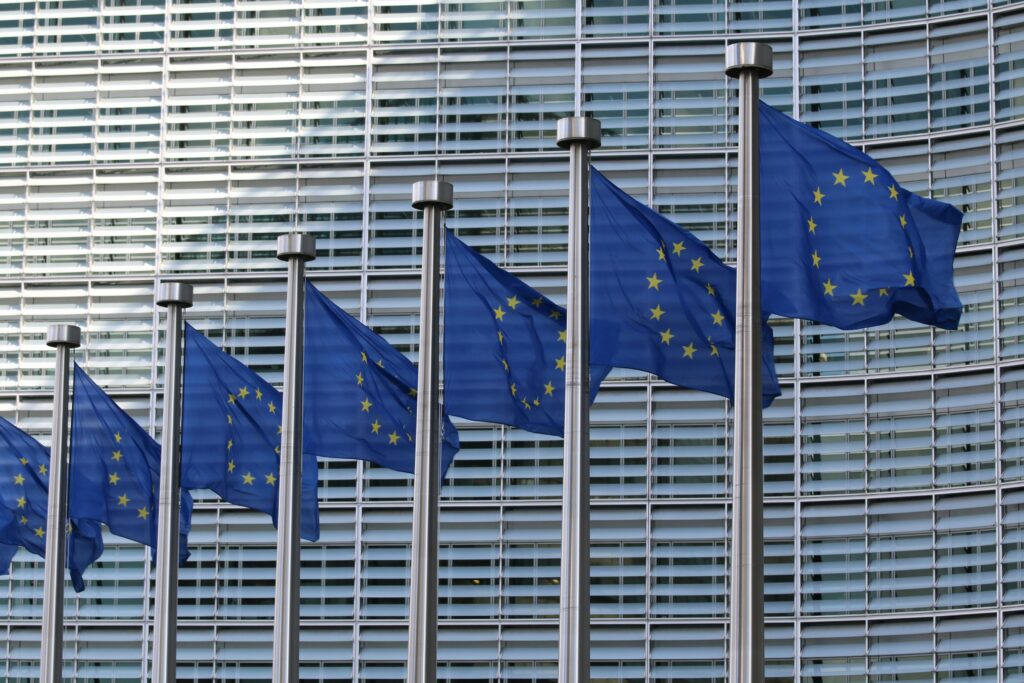Can the EU’s Social Climate Fund Make Yellow Vests Green?
Europe’s climate plan risks igniting social unrest if citizens are left behind in the clean energy transition.
Climate regulations are hurting competitiveness – at least that’s the mantra dominating political discourse in Brussels and various national capitals. The catch? The most politically explosive regulation has not yet been implemented: the new Emissions Trading System (ETS2) will levy fossil fuel use in the building and transport sectors. Simply put, it will become more expensive for citizens to drive their petrol cars or heat and cool their homes with gas boilers. Arguably, it’s a great injustice to place the burden of decarbonisation on everyday citizens instead of large polluters such as industry. On the other hand, these two sectors are responsible for the lion’s share of emissions in the EU, remaining stubbornly hard to decarbonise. Moreover, since all revenues from this new carbon levy must be spent on climate action, ETS2 can help finance decarbonisation measures at a time of growing budgetary spending limits by Member States.
The most politically explosive regulation has not yet been implemented: the new Emissions Trading System (ETS2) will levy fossil fuel use in the building and transport sectors.
Exactly because these sectors lag in their transition to clean energy, the price of each tonne of carbon dioxide in the ETS2 is expected to be much higher than what the European Commission originally projected. Unless we take rapid and ambitious measures to help households renovate their buildings and switch to clean heating and cooling and public transport, we face a ticking time bomb of sociopolitical discontent. It’s not just the moral thing to do. Rapid decarbonisation in line with the Paris Agreement targets can yield €1 trillion in co-benefits to the European economy, including avoided fossil imports.
Unless we take rapid and ambitious measures to help households… we face a ticking time bomb of sociopolitical discontent.
To cushion the expected impacts of ETS2 on vulnerable households, the Commission has established the Social Climate Fund – an €87 billion pot of money meant to help vulnerable households switch to clean transport and heating/cooling solutions. To access this fund, each Member State must submit a Social Climate Plan outlining a series of reforms and investments to target households and small businesses most affected by these new carbon levies.

In drafting their national plans, Member States don’t have to reinvent the wheel, as there are already successful measures to tackle energy poverty in place, including for example through the Just Transition or Recovery and Resilience Plans. Civil society has already put forward key recommendations to ensure national Social Climate Plans are genuinely effective, including:
- Broad public consultations – including anti-poverty networks, community energy federations, labour unions, municipalities, and academics – can ensure inclusive drafting of the plans. Poland and Romania have introduced dedicated working groups early in the process to improve the plans’ quality and working relationships.
- Boosting public and active transport infrastructure, including electric buses, light rail, and bike lanes. Estonia’s draft NSCP outlines measures for modernising public transport infrastructure through the procurement of buses, and expanding demand-based transportation services, especially in areas with poor connectivity.
- Deep renovation of worst-performing homes and expanding the provision of affordable social housing, including repurposing vacant properties.
- Target solutions that empower citizens, making them co-own the transition, including energy communities and housing cooperatives. This is considered a target measure in the Greek Social Climate Plan, and has been included in Poland’s draft following civil society recommendations.
- One Stop Shops that provide accessible and simple advice to vulnerable households, like the Public Service of Home Renovation or the Slime program in France, on how they can reap the opportunities of the Social Climate Fund.
- Temporary direct payments to vulnerable households to shield them from the carbon price increase, while structural measures are being implemented.
Considering that the EU requires over €1.3 trillion in annual investments to achieve the green transition (the transport sector alone amounts to €754 billion) it’s safe to argue that the Social Climate Fund is inadequate to address the huge investment gaps Europe faces. Decarbonisation, avoiding social unrest, protecting economic prosperity: how do we square the circle?
A simple solution would be to top up the measures in the Social Climate Plans with broader ETS2 revenues. From 2026–2032, assuming an average price of €45 per tonne of carbon dioxide, total revenues would be €258.6 billion. Moreover, harmful fossil fuel subsidies (standing at €78 billion in 2024) must be redirected to increasing the affordability of clean renewable energy across our homes and transport. Fossil fuel subsidies greatly undermine the ETS2 price signal. By making fossil fuels relatively cheaper, these subsidies facilitate the increased consumption of fossil fuels for higher earners while wasting resources that could be used to tackle energy poverty.
Fossil fuel subsidies greatly undermine the ETS2 price signal. By making fossil fuels relatively cheaper, these subsidies facilitate the increased consumption of fossil fuels for higher earners
There are legitimate concerns around ETS2, particularly on how it fails to target large polluters while placing the economic burden of decarbonisation on everyday households and small businesses. However, there is a unique window of opportunity to contribute to financing the energy transition and decarbonise the housing and heating/cooling sectors, while empowering those most vulnerable to the transition.
For this reason, a coalition of 31 EU and national organisations are creating a new tool to monitor the process of developing the Social Climate Plans, and ensure accountability. The “Social Climate Plans Tracker” will rate the 27 NSCPs, based on the level of participation, types of measures and investments, as well as coherence with other policies (e.g. Just Transition Plans), and funding streams (e.g. ETS1 and ETS2 revenues). We aim for this tracker to be a ‘One Stop Shop’ for policymakers and practitioners to help co-shape and improve the final plans.